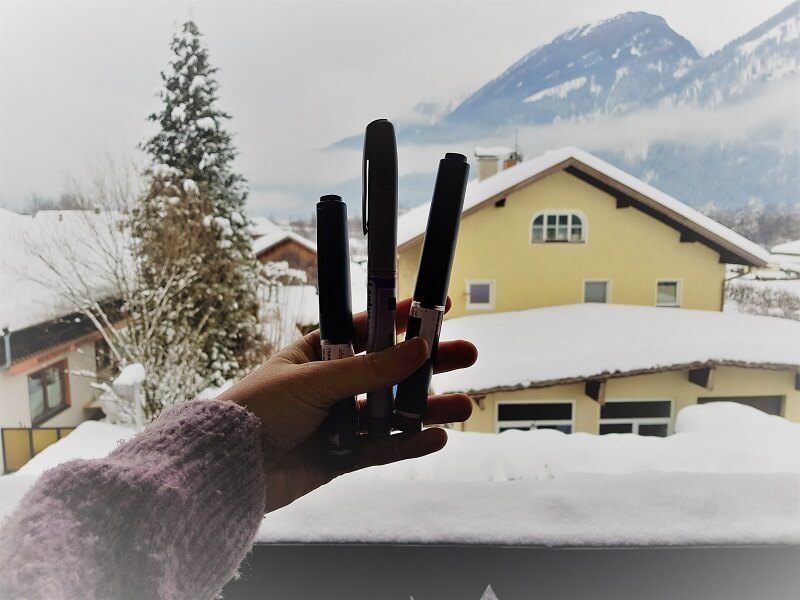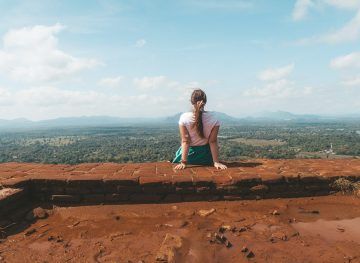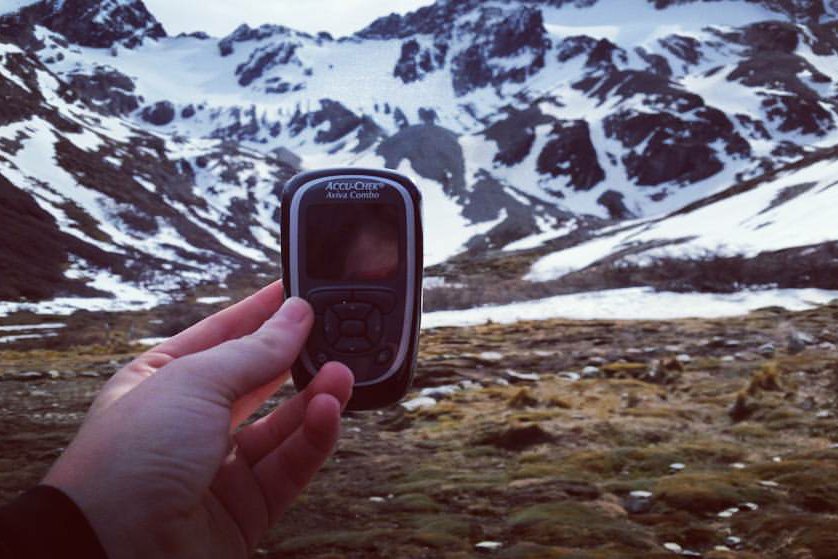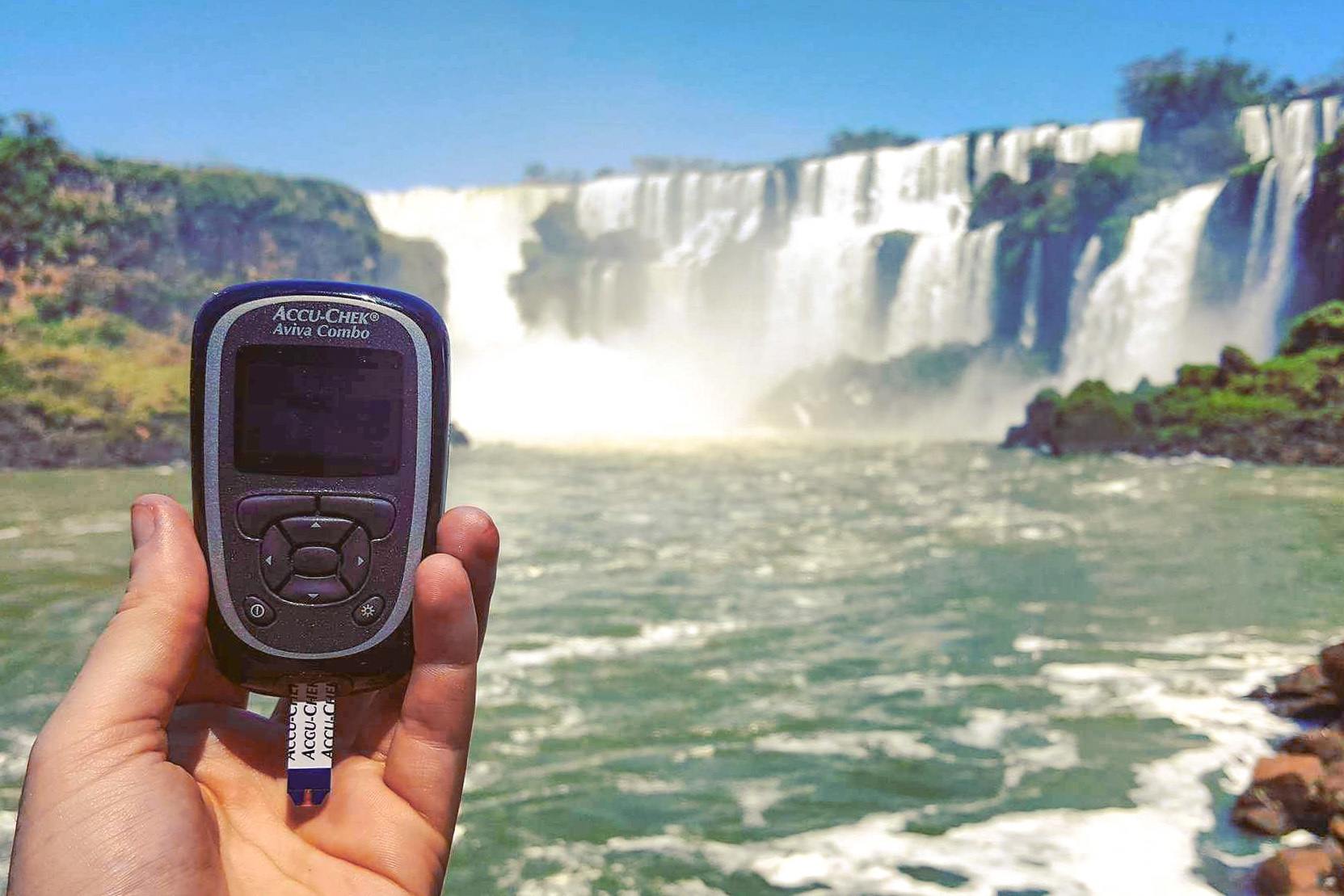More tips for managing diabetes while travelling around the world from Cazzy Magennis, of Dream Big Travel Far!
Planning for my first four-month trip to South America seemed like a daunting task, and I did not know where to begin. But I knew that the key was planning, planning and more planning… so I came up with a checklist that I could use to help prepare, and lessen the stress of planning.
Strangely enough, I LOVE to plan, and I spent hours creating this. In the end, I was ridiculously well-prepared for my trip, and so I hope you can find it useful too.
Here’s my checklist for traveling with type 1 Diabetes!
Foot Care
Traveling with diabetes can be a strain on your feet so it is important you take extra care with your feet!
Make an Appointment
Do it! An appointment takes less than 15 minutes and you can assess how healthy your feet are, traveling will be a lot more difficult with neuropathy so make sure you get regular check-ups.
Ask for Supplies
Dependent on the health care system of your country, your doctor may give you some for free but make sure you ask for dressings & antiseptic supplies for your trip. I got a full dressing kit from my doctor which was reassuring.
Sunscreen on Your Feet
I am guilty of making this mistake. I have burnt my feet often, but we know that diabetics take longer to heal, and if you couple that with neuropathy, then sunburn is going to be extremely bad for your feet, so whilst you lathering up the rest of your body- don’t forget the little feet!
Wear Sensible Shoes
This a little common sense, don’t go around in high heels all day, but that doesn’t mean you have to wear “diabetic recommended” shoes that are usually overpriced and to be frank, not very pretty, just make sensible choices, comfy trainers, strong shoes, shoes that fit!
Listen to Your Feet
If you are going to be walking for hours and you’re cramping, or your feet are tired out, and then make sure you follow my three step rule… rest, moisturize and massage! OR get someone else to do the massage bit if you are lazy like me. Only you know your own feet, so if you feel something is wrong, then sort it right away.
Eye Care
Eye care is important, and you need to have regular check-ups to pick up any complications early on. I do two appointments a year! If you need a refresher on Retinopathy then check out this guide here.
Take Care of Your Eyelids
Be sure to wear sunscreen on your eyelids because your eyes are very susceptible to burning so don’t forget them when protecting the rest of your skin.
Prescription Glasses
Prescription sunglasses- I got my first pair this year, and I find them fantastic! If you are going to a destination with lots of sunshine, it’s something to consider.
Helpful Tip
Remember that some anti-malaria tablets can make you more sensitive to the sun, so take extra precautions!
Health Insurance
Every country differs when it comes to health insurance and coverage. Some Americans who have health insurance may already be covered for trips abroad, but if not, it’s important you take out an adequate travel insurance policy travel insurance for your type 1 diabetes.
Read more about getting travel insurance with Type 1 Diabetes here!
Medical ID
Medical ID is usually something people like or hate… I will be honest, I hated the thought, and I avoided it at home, but I knew that when I took my first trip it was going to be imperative in case of emergency.
I would also recommend getting yourself an ID card– they’re very easy to find if you do a quick google search, and you can usually order one for free, or a small fee, and they are easy to pop in your bag.
Another suggestion is having a lock screen on your phone stating you are diabetic!
Prepare Injections
This is an expensive part of preparing for a trip! It is always important to get the correct injections for any location you visit, and you can always reference the CDC website.
Gathering Supplies
Actually calculating the amount of insulin and supplies you need for a trip is quite difficult! You need to consider out of the ordinary situations such as natural disasters or muggings. So, as a rule, I always take 3 times the supplies I would need.
This is usually way more than I use, but I feel it is better to be prepared for every situation than struggling to find insulin supplies in a remote destination which is only going to cause you stress.
Unfortunately for some people this isn’t possible under their insurance, or they just can’t afford it, but I would chat to your insurance company about the possibility of spare supplies which will be returned if not used, or getting a triple bulk of your supplies in one go and using the leftover resources on your return.
Either way, there are some extra supplies you definitely need, and for me the most notable of these is a Frio bag.
If you are in a country which offers free diabetic supplies, then I would recommend going to your doctor, explain how long you are traveling for, and order what you need. I have never had any issues with this, and if you are refused, change your doctor or get a letter from your consultant.
My Personal Checklist
Up to date with DSN, eye and feet checkups?
Doctor’s letter stating you are diabetic and need to travel with medication, pump or x-rays + a digital copy you can access in emergency
EHIC card, if you live within the European Union, which allows you quick access to diabetic supplies free of charge
Travel insurance documents+ a digital copy you can access in emergency
Medical ID– make sure you have a few in your belongings in case of theft
Spare pens in case of a pump breakdown
Lots of spare test strips for your meter
Ketone strips, lancets, batteries, pump supplies, etc.
Bring a spare monitor– order a free one, never ever pay!
An extra pump in case of theft. Some clinics provide a “spare” pump they allow pumpers to take away for a period of time… I take one with me on all my long haul travels!
Sharps disposal container– if it’s a small trip & you can’t get a sharps box, use a small tablet box and dispose of the needles when you get back!
Don’t forget a First Aid Kit! Travel clinics provide amazing ones that include antibiotics which are perfect in case of infection. They usually cost a small fee and whatever you don’t use you can reuse again and again. OR, make up your own (my mother tends to do this)!
Take a prescription of the medication you take & make sure you have the translated name of it in the country you’re visiting! Saves so much hassle in a pharmacy.
Take the number of your insulin provider & local embassy of your nationality in case of an ultimate emergency!
Wet wipes! I honestly didn’t realize how important these are. On countless occasions, I’ve tested my bloods without clean hands and been “high”, gave insulin, and it turned out I wasn’t actually high and drove myself into bad hypos! Not fun. They also can be used to keep your monitor clean!
Frio bag– do not leave without one & find out why here!
Remember diabetes is important, but don’t let it take over your life, with a little careful planning and consideration, there is nothing you can’t do!















Very good article. I’m so impressed. Thanks for sharing. Keep up the good work.
My dd19 is hopefully going to university tomorrow and I was writing a list of the things she must take for her Type 1 diabetes, something she has had since she was 3.
Not long after she was diagnosed, her infant sister kept wetting diapers, it seemed like more than usual. So I checked her sugar and it was in the 300s. I was hysterical but amazingly, I got ahold of a PA and she asked if our hands were clean. I had made my child some infant formula before checking her sugar and had not washed either of our hands. So I washed our hands and rechecked her sugar and it was normal. It’s always so important to wash hands!
That’s really good to know, thank you for sharing!